Translations 677
Beyond Racism

Graphic Opinion: Beyond Racism
 By Adán Iglesias ,
By Adán Iglesias ,
Renowned Cuban cartoonist. Director of the humorous publication DDT.
Translated and edited by Walter Lippmann for CubaNews.
During the 2016 presidential campaign, Donald Trump was the candidate of several supremacist groups. Since his rise to power he has come to declare that among the supremacists there are “good people”.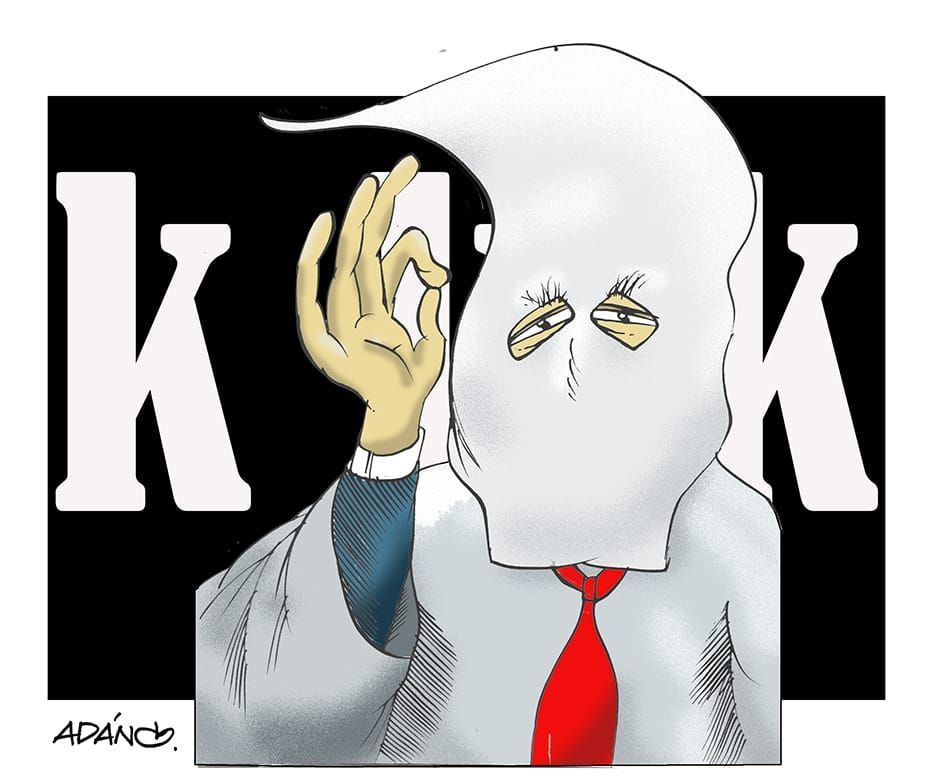
From James Monroe to Marilyn Monroe

From James Monroe to Marilyn Monroe: America for the Americans
American cinema is one of the most powerful weapons of the culture and symbol war that threatens us today.
April 4, 2018 20:04:06
A CubaNews translation.
Edited by Walter Lippmann.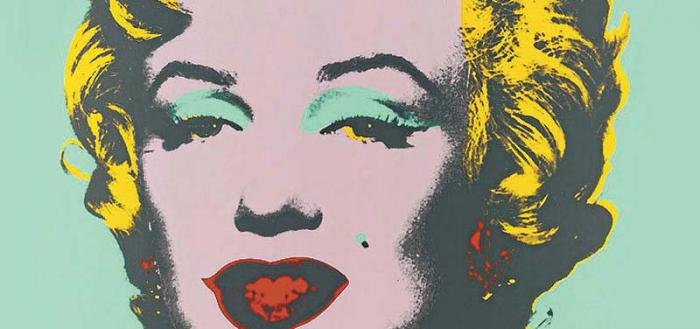
The industry turned the beautiful blonde Marilyn Monroe into a glamorous sex symbol, an object of collective desire. Photo: MOMA
Rene Greendwald, a veteran CIA official, said in a preparatory meeting for the Genesis project, aimed at the cultural war against Cuba, that they had been more successful in Latin America with Marilyn Monroe than with the Monroe Doctrine. The CIA specialist, who also said that the scenario of a conventional war was well interpreted by the Cubans, whom he believed were capable of facing and defeating any attempt at military occupation, was right, but he always raised the question: And when the enemy is in your living room? How do you identify in a series of your choice, in a film, in a sports programme, in a raeality show or a talk show, an action of the enemy?
American cinema has effectively contributed, on our continent in particular and in the world in general, to the efficient “selling” of the American way of life, to instilling in people’s minds the image of the superiority of Americans, the invincibility of their army and the inferiority of the peoples of the southern hemisphere. It has helped to distort history, to sell us its products, to impose its fashions, its national symbols.
THE GREAT DREAM FACTORY
U.S. cinema, in the midst of a process of expansion and development, reached Europe and spread throughout Latin America after the First World War. These were the happy 1920s, which corresponded to the period of economic prosperity in the United States from 1922 to 1929.
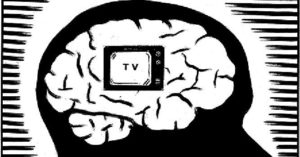 Hollywood cinema is becoming an efficient tool for “Americanizing”, or simply transmitting the values of the American way of life, spreading the stereotypes outlined by psychology in its prestigious universities, to the cultures and ways of being of the people of the rest of the countries of the world.
Hollywood cinema is becoming an efficient tool for “Americanizing”, or simply transmitting the values of the American way of life, spreading the stereotypes outlined by psychology in its prestigious universities, to the cultures and ways of being of the people of the rest of the countries of the world.
Hollywood cinema is becoming an efficient tool for “Americanizing”, or simply transmitting the values of the American way of life, spreading the stereotypes outlined by psychology in its prestigious universities, to the cultures and ways of being of the people of the rest of the countries of the world.
Martin Luther King

Martin Luther King: 50 Years Can’t Kill a Dream
April 4, 2018
Translated and edited by Walter Lippmann for CubaNews.
The speech that American activist Martin Luther King is remembered for today was entitled “I have a dream”. The three words became a milestone. Hundreds of politicians and presidents from around the world have used that same phrase at public events. But none has been as powerful as the one Luther King starred in on August 28, 1963, on the steps of the Lincoln Memorial in Washington. However, last Saturday, March 24th, the story of this phrase began a completely new chapter.
Yolanda Renee King, granddaughter of the leader of the civil rights movement in the United States, repeated her grandfather’s words very close to where he first spoke them 55 years ago. At just nine years of age, Yolanda stepped onto the stage with the confidence of a leader who knows the legacy that precedes her and the power of words.
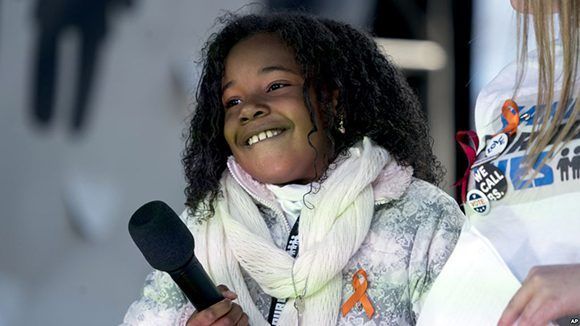
Yolanda Renee King, granddaughter of Martin Luther King Jr., speaks on “The March for Our Lives” in support of gun control. Photo: Andrew Harnik/ AP
VIDEO: https://twitter.com/AMarch4OurLives/status/977625892745658368
Capitalism and Democracy
Capitalism and Democracy are Opposites
 By Manuel E. Yepe
By Manuel E. Yepe
http://manuelyepe.wordpress.com/
Exclusive for the daily POR ESTO! of Merida, Mexico.
Translated and edited by Walter Lippmann.
The capitalist socio-economic order is synonymous with freedom only for those who accept that the first freedom must be for capital and that money must be free to buy everything. When the capacity of money to acquire the goods that sustain life in society is restricted or when it is prevented from behaving in the manner of another commodity that can be bought and sold, it is restricted to capitalism.
That is why it is so important for capitalism that popular consciousness has been manipulated by the system and won over to the idea that “capitalism” equals “democracy” and that any attack on the freedom of money to acquire any of the earthly and moral goods of society is an attack on democracy.
Can you imagine what your country, and this planet, would be like if doctors, educators, courts, governments, the means of production and services, information, cultural expressions and even the conditions for making love were equally available to everyone in a society where money cannot determine differences in the quality and urgency of benefits?
But this would distort the precarious asymmetrical balance present in almost every society on the planet, because capitalism needs such ideas to continue on the fringes of citizen aspirations.
Because, for capitalism, it would be terrible if a person with many economic resources were condemned to the same quality of life and the same conditions of treatment and possibilities of cure in cases of illness as those who lack sufficient money.
Because, from a capitalist point of view, it cannot be considered logical that the descendants of the wealthy should have to share the same classrooms and quality of education with children from poor families.
Because it does not seem rational to a good bourgeois that the poor and the rich should be judged, in the case of crime, by the same standards, nor that they should share galleys in prison with corrupt millionaire and hungry common criminals.
Because in the electoral systems of capitalism, it should not happen that elected leaders should dispense with the donations made by the richest, most influential and responsible individuals and entities of society in their campaigns for office. In their future performance as leaders, they may consider themselves obliged to protect the security of corporate capital and that of the nation’s most important and powerful layer.
Because, in the capitalist order, the media is only free if private capital can buy radio and television stations, magazines, newspapers, news agencies or any other means of communication. This is so that they may be in a position to efficiently ensure that what is published serves their own interests, which are the determining factors in bourgeois society as a whole.
Because the capitalist system needs the best of national and international art and culture to be exhibited or imported for the enjoyment of society’s educated elite, which has the resources to pay for the costs involved through advertising.
Because in a capitalist society it is considered healthy that everything is structured in such a way that the main attraction for gender relations is money and economic position. Thus, the most beautiful men and women are attracted to other beautiful men and woman with greater wealth, without peculiar considerations such as understanding, kindness, sensitivity or other sentimental or otherwise subjective arguments.s.
For capitalism, stimulating competitiveness and the struggle for profit as engines of progress, at every level of the economy, brings the greatest dividends and any other consideration – moral, ethical or patriotic, for example – limits the development of the nation.
When any of the above conditions are missing or are threatened by the misunderstanding that they are inherent to capitalism and that this is the same as democracy, we must act with haste and without mercy.
This is how modern capitalism does it systematically, through the government of the United States and the oligarchies that are submissive to it, anywhere in the world.
The erratic hegemonic performance of the United States in recent years has contributed greatly to the discrediting of the capitalist way of life on a global scale. Capitalism has shown that its model is not in line with the aspirations of the dispossessed classes of the rich countries, nor with those of the peoples of the Third World, who are eager to live in a less cruel and more equitable system.
April 5, 2018.
MLK: The Resurrection
 MLK, Jr.: The Resurrection
MLK, Jr.: The Resurrection
By David Brooks
Translated and edited by Walter Lippmann for CubaNews
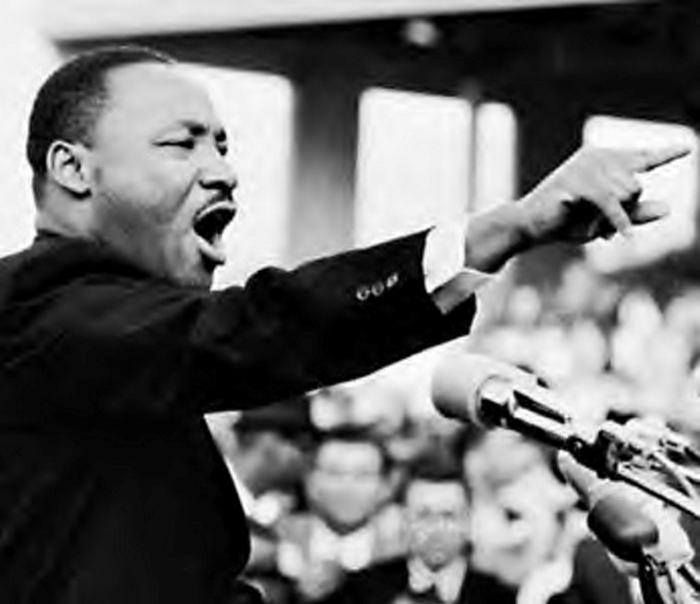
The Reverend Martin Luther King Jr., during the March on Washington for Work and Freedom, a major demonstration on August 28, 1963, where he delivered his historic I Have a Dream speech. Next Wednesday will be the 50th anniversary of his murder in Memphis,
English Article Goes Here
===
The Reverend Martin Luther King Jr. was killed 50 years ago (April 4) in Memphis, marking the bloodiest moment of what would be a 1968 that shook the United States and various parts of the world. Half a century later, this country is in the midst of a reactionary wave that has elevated a white supremacist backed by the Ku Klux Klan to the presidency, almost enough to make fun of King’s famous dream.
But it is worth remembering that King, when he was assassinated, was no longer just the man with a dream of racial equality, but a Nobel Prize winner and international moral authority who had dared in his later years to question and condemn his country’s economic and imperial system, including the war against Vietnam.
King went to Memphis, in the southern state of Tennessee, to support a union garbage workers strike in the name of economic and social justice. At the same time, he was organizing a national mobilization called the Poor People’s Campaign to demand economic rights for the underprivileged of all races and colors, a fundamental change in the U.S. capitalist system.
In the official rites and celebrations that King receives each year, it recalls his famous I Have a Dream speech, which he gave in 1963, but they almost never mention the radical message at the end of his life.
In 1967, King told a civil rights organization that the movement must address the issue of a restructuring of American society as a whole, adding that doing so meant coming to see that the problems of racism, economic exploitation, and war were all linked. These are interrelated evils. On the issue of economic injustice, he did not limit it to a racial issue: Let us be dissatisfied until the tragic walls that separate the outer city of wealth and comfort from the inner city of poverty and despair are destroyed by the battering rams of the forces of justice.
A few months earlier, he commented at a meeting of a civil rights organization: I think it is necessary to realize that we have moved from an era of civil rights to an era of human rights (…) we see that there has to be a radical redistribution of economic and political power…’.
Fifty years later, despite major changes in the country’s laws and regulations around institutional racism, crowned by the election of the first African-American president and what that means in a country founded on the backs of slaves, in essence, little seems to have changed.
An AP/NORC poll last week found that only one in 10 African Americans think the United States has met the goals of the civil rights movement half a century ago (35 percent of whites believe it has) after two rounds by an African-American president.
Fifty years later, new generations are continuing the fight against economic inequality, which has reached a record level in almost a century, with 1 percent of the richest families controlling nearly twice the wealth of 90 percent of the poor.
Fifty years later, incidents of official violence provoke fury. Impunity prevails as before, and indicators of segregation and racism multiply along with, and part of, the official anti-immigrant policies. Not to mention militarism in a country that has been in its longest wars in its history hoping to forget Vietnam.
But in the face of this, 50 years later, King’s echoes are heard all over the country.
Teachers in Oklahoma will begin a strike this Monday, following the triumphant example of their West Virginia peers, demanding not only a living wage and respect for their work – as they did 50 years ago in Memphis – but also greater investment in public education, especially to serve the poor and minorities; their counterparts in Kentucky (where teachers declared themselves sick by closing schools in 26 counties last Friday), Arizona and Wisconsin
African-American Rev. William Barber, famous for his Moral Mondays movement in North Carolina in 2013, which fought state initiatives to reduce spending on education and healthcare and to overturn some electoral rights, is resurrecting King’s Poor People’s Campaign this spring, and declaring, as his predecessor, that this is a moral issue.
MLK Dreamed of a Different America

Recalling the Memory of a Man Who Dreamed of a Different America 50 years ago.
Martin Luther King was honored in many places around the world today on the 50th anniversary of his murder.
Author: International Editor | internacionales@granma.cu
April 4, 2018 21:04:51
WASHINGTON: The life and work of Martin Luther King, a symbol of the struggle for civil rights in the United States, was remembered in the United States and much of the world today.
The murderous bullet that killed the renowned Baptist pastor in Memphis, Tennessee, on April 4, 1968, deprived humanity of one of its most tireless activists, who has since become an example to many of those who dream of a better world, reports Prensa Latina.
King dedicated his life to demanding an end to discrimination in the United States, where hundreds of years after the war of independence, blacks could not access certain places and had no right to vote.
He was also a harsh critic of the Vietnam War.
Despite the public notoriety he achieved, the activist was investigated and harassed by the FBI. In recent years, the real extent of the official political persecution of his movement, which included wiretaps of private calls and the spread of unfounded rumors, has come to light.
This Wednesday, personalities from around the world remembered his historic speech on the Lincoln Memorial esplanade in Washington, D.C., where he spoke the historic phrase “I have a dream.”
Half a century later, many of their demands remain unfulfilled in the United States, where discrimination and differences between blacks and whites continue to be a daily reality.
King’s granddaughter, Yolanda Renee, recently climbed on a platform to remember the Baptist pastor’s words when he asked that “his four little children be judged not by the color of their skin, but by the content of their character.
“I have a dream where we’ve had enough and where this world is one free of weapons. Period,” said the nine-year-old.
For his part, the president of Venezuela, Nicolás Maduro, recalled the legacy of the American social leader in a message published on Twitter.
“Martin Luther King was shot in the head in 1968 while greeting his followers in Memphis, Tennessee. Venezuelan young people must know their struggle and their dreams for us to make them a reality,” Maduro said.
Meanwhile, in Cuba, he was honored in a monument erected to his memory in the central park of 23 y F in the Vedado neighborhood.
The memorial event, organized by the Memorial Center that bears his name, opens a broader agenda of activities to be carried out this year related to the event.
Victor Fowler, director of the Centro Cultural Dulce María Loynaz, said Martin Luther King was an example of commitment and strength.
MLK: When a Dream Doesn’t Die

MLK, Jr.: When a Dream Doesn’t Die
Fifty years after the assassination of Martin Luther King Jr., the United States is still convulsed by racial inequality, but hope also remains.
 By Marylín Luis Grillo
By Marylín Luis Grillo
digital@juventudrebelde.cu
Posted: Wednesday 04 April 2018 | 09:35:06 PM
A CubaNews translation.
Edited by Walter Lippmann.
It was a single shot from a Remington-Peters rifle. Martin Luther King Jr. had fallen in Memphis, Tennessee.
Hours earlier, in a sermon, as if in anticipation of the bullet that tried to quell his throat, he had said to the congregation of the city: “We have difficult days ahead of us […] Like everyone else, I would like to have a long life. […] But that doesn’t worry me now. I just want to do God’s will. And he has allowed me to climb to the top of the mountain. And from there I saw the promised land. I may not get to her with you. But I want you to know tonight that we, as a people, will reach the Promised Land. And I’m happy about it. Nothing worries me.
Luther King, who at the age of 39 had won the Nobel Peace Prize, had led a non-violent struggle for the civil rights of the African-American community, which had become the banner of hope… King did not die, because dreams do not die, they only come true.
The results of their struggle are not yet complete. Fifty years after his murder, the United States is still convulsed by inequality. The latest statistics illustrate that African-Americans suffer three times as many expulsions and school dropouts, their average household income is half that of white families, and with only 13 percent of the population, El País reported, they account for 40 percent of drug arrests.
A study by the Inequality of Opportunity Project also concluded that racial income disparities are one of the most persistent issues in American society, and that the racial identity to which one belongs marks the opportunities for study, work, salary levels, and social advancement from generation to generation.
Black people are also three times more likely than whites to be victims of police in the United States, and in 2015 alone, for example, with Barack Obama in the White House, law enforcement officers killed more unarmed blacks than armed whites. Faced with an Afro-descendant, the trigger is pulled without much attention.
Police repression, increasing inequality, debates in society about the role of identity groups, and Trump’s racist rhetoric are some of the factors that have led to the resurgence of movements like the National Association for the Advancement of Colored People (NAACP) and the birth of others like Black Lives Matter.
“No Justice, No Peace” said one of the posters that flooded the streets of Sacramento a week ago protesting the death of another black man by police, 22-year-old Stephon Clark, who was shot down in the Californian capital on suspicion of breaking car windows and running around with a cell phone in his hand, which officers said they mistook for a gun.
Police opened fire up to 20 times on Clark and eight bullets hit him, seven from behind. The video of the arrest hardly shows whether the young man was approaching the officers or not. They do not order him to freez, or to lie on the ground, after the first order to show his hands, they immediately shout “gun” and shoot. The city has been shaken up again, but it is not enough.
This is a good time to remember Luther King. Less than two weeks ago, her nine-year-old granddaughter, Yolanda Renee, was repeating the mythical words “I have a dream. She called for “a world without weapons”. His father, Martin Luther King III, son of the pastor, announced Friday the launch of a global initiative to encourage young people to focus on non-violence to resolve their conflicts.
The struggle continues, but it must be carried to its end; “from the mountain of despair, a stone of hope,” Dr. King would say. He was the same one who never stopped spreading faith because he had died: no bullet can kill dreams.
Hollywood anti-Cuban Mafia Action Movie
 MARTIANOS
MARTIANOS
Followers of the thought of José Martí Network of Cuban emigres.
Hollywood to Film anti-Cuban Mafia Terrorist Action Movie in Miami
By Arthur González
Posted by Virgilio PONCE on April 4, 2018 at 11:07am
Translated and edited by Walter Lippmann for CubaNews.
The truth always finds a way, even if it takes time, and now Hollywood has agreed to bring to the big screen the story of some of the terrorist actions carried out by the anti-Cuban terrorist mafia of Miami, which the Cuban people have denounced so much.
The totality of the denunciations of these terrorist actions against Cuba will have to wait for Hollywood to decide to count them, since many of its perpetrators still live peacefully in the United States, supported by renowned Congressmen such as Ileana Ros-Lehtinen, Mario Díaz-Balart, Bob Menéndez, Marco Rubio, Ted Cruz and others.
The film, based on the recent book entitled The Corporation, attempts to recount the events of 30 years, carried out by Cuban mafia members. All have the status of “political refugees” granted by the US authorities, although in the book they are classified as “real adventures”, avoiding calling them “terrorist acts” in order not to seek conflict with those most responsible for these plans.
This mafia was formed, trained and financed by the CIA to act in Cuba against the Revolution. Many of its members were part of the mercenary Brigade [2056] that invaded the island in 1961. After being released by the Cuban government, they returned to the United States, training for terrorist acts, where the struggle over money and political power brought a war between them.
The Corporation, tells part of the life of a single group of these Cuban “political refugees”, led by José Miguel Battle, mercenary of the Bay of Pigs invasion. He became the boss of illegal gambling and drugs, from Miami to New York, something that still happens in the underworld of these anti-Cubans, many of whom amass powerful fortunes with which they support politicians of Cuban and American origin.
José Miguel Battle, is one of hundreds of henchmen of the dictator Fulgencio Batista, who managed to escape revolutionary justice and found support and safe haven from the U.S. authorities. They refused to comply with the extradition agreement signed with Cuba and in force until 1961, despite the official demand that Cuban authorities made for years.
Murderers, torturers and former members of the dictator Batista’s repressive bodies, such as Battle, make up this mafia half-described in the book. This is because there are others, not mentioned in the book, despite the volume of crime they committed. These include Rafael Díaz-Balart, former interior minister, also a refugee in Miami; Rolando Masferrer, chief assassin of a paramilitary body known as Los Tigres; Colonel Esteban Ventura, murderer of hundreds of young people; Conrado Carratalá Ugalde, former head of the Department of the Batista Police Department; Luis Alberto del Rio Chaviano, Brigadier General of the Batista army; Colonels Orlando Piedra Negueruela, Mariano Faget Díaz and Rafael M. A. Gutiérrez Martínez; Pilar Danilo García y García, Brigadier General, chief of the tyrant’s police force; Lieutenant Colonel Irenaldo Remigio García Báez, former head of Batista’s Military Intelligence Service.
Nor does the text tell of Operation Condor, carried out by the CIA in Latin America. In it, many of these Cuban mafiosi took charge of murdering and torturing thousands of young people. Others include the terrorist acts suffered by the Cuban people at the hands of CIA agents, such as Carlos Alberto Montaner, who was arrested and punished for placing an incendiary flask in a shopping mall in Havana, escaped from prison and is now a refugee in Havana.
Likewise, they omit to mention the multiple murderer Luis Posada Carriles, a “political refugee” in Miami despite being the confessed author of the bombing of a Cuban civilian plane in mid-flight, where 73 innocent people died.
The terrorist acts planned and carried out by dozens of counterrevolutionary organizations financed by the CIA, such as the Comandos L, Alpha 66 and Omega 7, would need a series with many seasons for the world to know the truth about why Cuba has been denouncing them for 60 years.
Thousands were killed and assassinated by these mafiosi, including Cuban diplomats, the detonation of bombs in Cuban embassies, consulates and commercial offices abroad, dynamited ships, the introduction of pathogenic germs to sicken people, animals and the flora of the island, and many more crimes.
The Corporation is a tiny part of the history of this anti-Cuban mafia, all with the status of “political refugees”, thanks to the subversive manipulation of U.S. immigration policy against Cuba, due to, in the first place, the Cuban Adjustment Act.
The accounts of daylight shootings in the streets of Little Havana and the successful blows celebrated with parties where they gave away bags of cocaine. These are almost child’s play compared to the murky actions of that mafia, such as placing a bomb beneath the seat of former Chilean Foreign Minister Orlando Letelier in Washington, DC, where he, his wife and the driver were blown to pieces.
Its authors, including Guillermo Novo Sampol, live peacefully in Miami as “political refugees”, thanks to the efforts of Representative Ileana Ros-Lehtinen.
The book, although it does not cover all the terrorist actions, is a sample of those who are those murderers whom the United States welcomed as “refugees”, hiding the truth from its citizens who, with part of their taxes, have kept that rascal that forms part of the evil called “Cuban exile”.
That’s why we remember José Martí when he said:
“He smiles at the appearance of truth.”
Arthur González, Cuban, specialist in Cuba-U.S. relations, editor of the El Heraldo Cubano blog.
Of the Dream and the Nightmare

Of the Dream and the Nightmare
Fifty years after Martin Luther King’s momentous visionary speech, African Americans continue to struggle to find the path to true equality.
 By Juana Carrasco Martin
By Juana Carrasco Martin
juana@juventudrebelde.cu
Published August 37, 2013 21:39:36 CDT
Updated: Thursday, September 21, 2017 | 10:25:08 PM
A CubaNews translation.
Edited by Walter Lippmann.
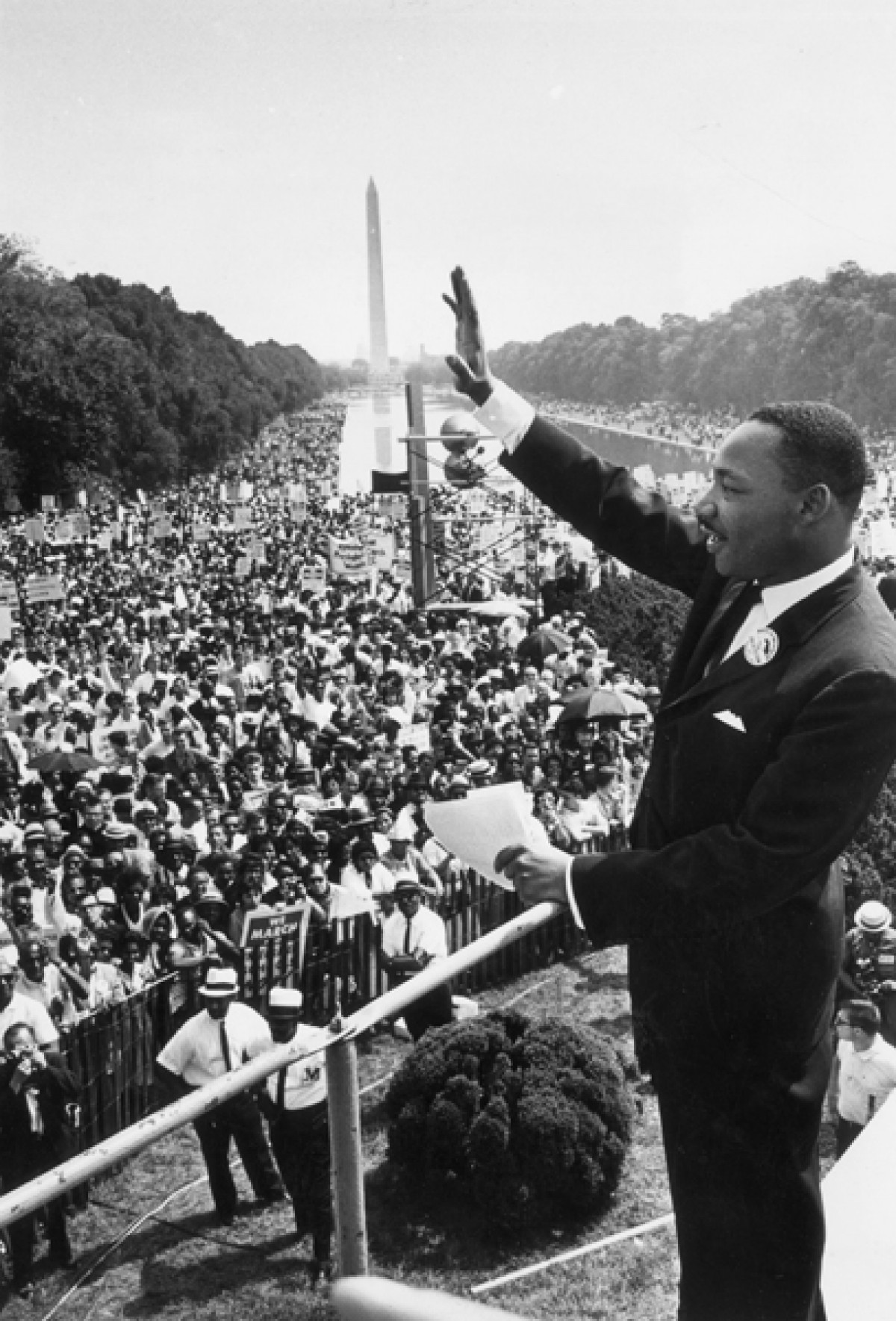
Martin Luther King greets the crowd at the Lincoln Memorial on August 28, 1963. Author: AP Published: 21/09/2017 | 05:38 pm
It was a blast, revalidating the struggle of many, raising the awareness of others and forming ranks in a social movement involving blacks and whites because it was for the civil rights of all. It also awakened those who were still lethargic after hundreds of years of outrage and submission.
On August 28, 1963, the 100th anniversary of the Emancipation Proclamation for black people in the United States, the end of slavery, was observed when a crowd, led by the Rev. Martin Luther King and other leaders of the black people’s struggle and social and labor movements, marched on Washington and gathered at the National Mall at the foot of the imposing statue of Abraham Lincoln.
“I have a dream,” he said in his speech to what he called the greatest demonstration of freedom in the history of the nation, and he called out with utter crudeness that a century later “we must face the tragic fact that the black man is not yet free. He was chained by segregation and discrimination, “living on a lonely island of poverty in the midst of a vast ocean of material prosperity,” he was “an exile in his own land.
The dream? that the words of the Constitution and the Declaration of Independence will apply to each and every American as a guarantee of the inalienable rights to life, liberty and the pursuit of happiness. These were denied to “citizens of color” who had been given a bounced check from a bankrupt justice. But this marginalized, humiliated, separated people, who were denied every opportunity, even the most basic, knew of their right to open the doors of justice, to cast aside racial injustice and to build “the solid rock of brotherhood.”
The time was urgent, warned Martin Luther King, and also alerted his people and the rest of the United States: “1963 is not the end, but the beginning” (…) “There will be no rest or tranquility in America until the black man establishes his citizens’ rights. The winds of revolt will continue to shake the foundations of our nation until the bright day of justice emerges.
Three national television networks, for the first time, covered the march for jobs and freedom in together. The message reached the entire nation that a melting pot was being said, the pot that had mixed all the peoples who had come to its shores and built a powerful country, but that was one of the great lies. The Black ingredient, even the original peoples, the “red skins”, had been taken out of society. That media coverage was proof that it was time for change.
There Joan Baez and Bob Dylan sang, as did the gospel performer, Mahalia Jackson, who carried the feeling of the crowd with I’ve Been ‘Buked and I’ve Been Scorned. Many spoke, including Joachim Prinz, president of the American Jewish Congress, recalling his years as a rabbi in Berlin under Hitler, who said – according to The Guardian – that his great people, who had created a great civilization, had then become a nation of silent spectators to hatred, brutality and mass crimes and cried out: “America cannot become a nation of spectators. America must not remain silent.”
On August 28, 1963, and Martin Luther King’s “I have a dream” speech, a door was opened. It was hardly mentioned in the 64,000 pages of debate and congressional hearings that gave way to the Civil Rights Act of 1964 or the Voting Rights Act of 1965, which put on paper what it should be and yet was not; but it was a touch of the target.
Enemies took it into account. Cointelpro, the program of espionage and infiltration into the social movements of the time, made him its target. William Sullivan, the FBI’s assistant director of domestic intelligence, recommended: “We must mark him now, if we have not done so before, as the most dangerous black man in the future of the nation.”
Hot summers came and their street uprisings, many more marches and actions, unity with the anti-war movement, and rejection of the Vietnam War, which they also used as their favorite cannon fodder for blacks and Latinos. Martin Luther King was in that fight for all.
Little by little there were achievements, even a middle class of “coloured” men and women emerged, their numbers increased in universities, they became professionals, their faces already appeared as leading figures in Hollywood films, they showed, even more, their value in the sports world, where the image of a black fist is vivid as a symbol of Black Power, the power of black people.
Blood flowed – that of Martin Luther King himself in April 1968, that of Malcolm X, that of George Jackson, that of many others – Mumia Abu Jamal is still in prison and those who chose more radical methods of struggle are being persecuted. Other leaders in an ongoing struggle were highlighted, as the Lincoln Memorial speaker said as the summer of 1963 ended: it was only the beginning…
And 50 years later, what?
Present at the rally at the National Mall on Saturday, August 24, 2013, which brought together no less than 100,000 Americans of all colors, generations and ideologies to commemorate the 50th anniversary of Martin Luther King’s oratory piece, were the parents of Trayvon Martin. He was the 17-year-old boy shot dead in the chest by a white vigilante in Florida on February 26, 2012. It took protest marches in many American cities and a lot of work to have the perpetrator arrested and put on trial, and almost now, in July, a jury of five white women and a Latina declared him “Innocent.” Not a few posters in front of Lincoln’s statue again called for justice for what is perceived as a hate crime.
Police in New York and other U.S. cities are accused of practicing stopping and frisking bystanders, most of whom are black or Latino, and preferably young, for no reason. They are stopped because of racial profiling. African-Americans make up seven times more than whites among the prison population, which is already the highest in the world. In the United States, it is known and recognized that they invest more in prisons than in schools….
Only 21 percent of their youth reach high school or college, compared to 37 percent of whites. Budget cuts in major cities declared bankrupt and in federal spending itself, that of the entire nation, affect the public school system and, of course, scholarships or university credits. It goes without saying that communities and neighborhoods where poor or low-income minorities live are among the hardest hit by teacher layoffs. During Barack Obama’s tenure alone, more than 300,000 school jobs have been lost – with a high proportion of these being African-American teachers and staff. Public education will be of even poorer quality, which means that there is no future sown there.
The unemployment rate in 2012 was 13.6 percent for the African-American work force, while the white unemployed made up 8.1 percent. Of the 45 million Americans who receive food aid because they are poor, more than 25 percent are black.
Barack Obama, the first black president of the United States will speak today, August 28, in honor of Martin Luther King. But it is well-known that the president is only an image in a House that is still white and protective of the interests of the powerful 1% against the 99% who – without distinction of race – have declared themselves in struggle and have also begun a path to close the gaps of class inequality, as the Occupy [Wall Street movement] which has been marginalized.
Now, in the southern states, even in other regions, electoral districts are being reconfigured and the black population is once again segregated from the vote, even having to pay to register. It also is the population with the lowest income, thereby discouraging voting. There is only one black senator among the top 100 in Congress, and 43 representatives in the House of Representatives, among 435…
Therefore, the validity of the thought of the civil and pacifist leader: “I have a dream: that one day this nation will rise up and live the true meaning of its creed. We hold this truth to be self-evident: All men are created equal.
Martin Luther King will continue: “Even though we face difficulties today and tomorrow, I still have a dream.”
Ostentation or Petulence?
Ostentation or Petulence?
By Luz Maria Martinez Zelada
March 31, 2018
Translated and edited by Walter Lippmann for CubaNews.

The Cuban people are, par excellence, cultured and simple, but there is a segment who practices ostentation, as a way of attracting attention. In manycases it manages to affect others.
The display of many jewels at the same time is reminiscent of street vendors who used to put them on their bodies for marketing purposes, which does not reflect good taste and is shocking to most people.
But the wearers of so much shininess will say that they like to show off the brilliance of the metals and it is still a childish truth.
There is another example of the financial capacity of the ostentatious, referring to audio equipment: the more powerful, the more expensive.
Owners of powerful devices go out on the street or place them in front of the window, not so much for the purpose of listening to the music but so that everyone [in the neighborhood] knows so much about their property that they cannot sleep, hear the television or talk at home.
Other demonstrations abound, such as the dogs, man’s best friend. Some make the noble animal the object of display, dogs that must be the most expensive to walk wearing a shiny chain too.
Boasting about one’s advantageous financial situation makes one think of the sentences of José Martí, in the letter he wrote to Maria Mantilla, from Cape Haitian on April 8, 1895.
“…Too much shop, not enough soul. He who has much inside needs little outside. Whoever has a lot on the outside has a little on the inside, and wants to hide what little… ” “.
“…it is a human duty to cause pleasure instead of sorrow, and he who knows beauty respects and cares for it in others and in himself. But he will not put a jasmine in a Chinese vase: he will put the jasmine, alone and light, in a crystal of clear water. That’s the real elegance: that the glass is just the flower.
In the face of so much showing off, one might wonder if these ostentatious people lost their ability to admire the flower, influenced by the consumer society, which was alien to the roots and idiosyncrasies of the Cuban people.
(Taken from ACN)
Subscribe to Blog via Email
| M | T | W | T | F | S | S |
|---|---|---|---|---|---|---|
| 1 | ||||||
| 2 | 3 | 4 | 5 | 6 | 7 | 8 |
| 9 | 10 | 11 | 12 | 13 | 14 | 15 |
| 16 | 17 | 18 | 19 | 20 | 21 | 22 |
| 23 | 24 | 25 | 26 | 27 | 28 | |

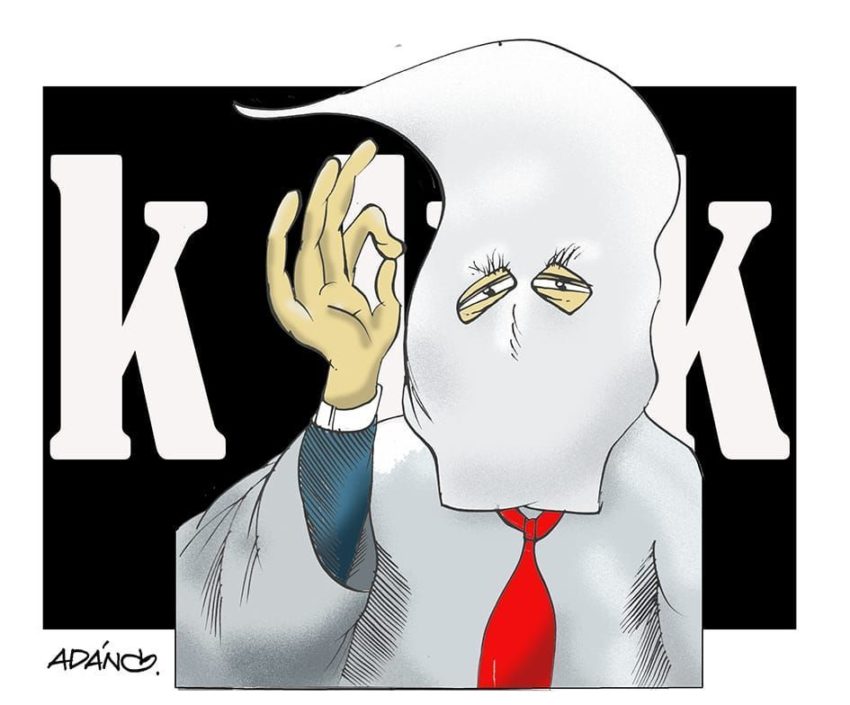
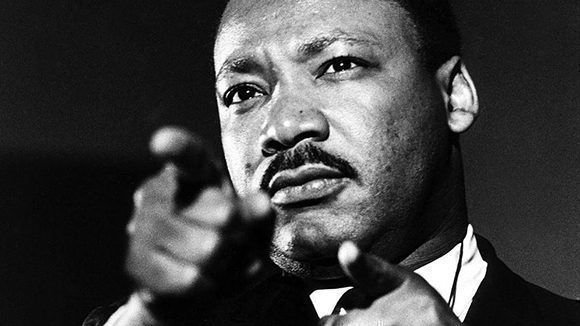

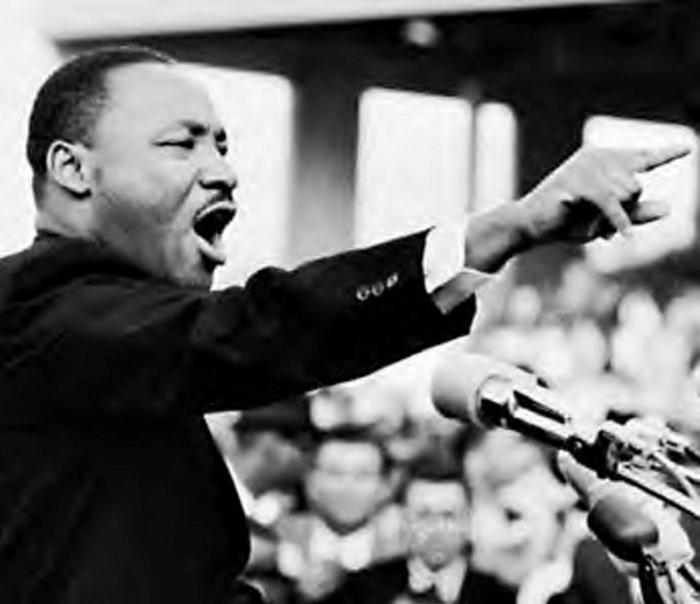



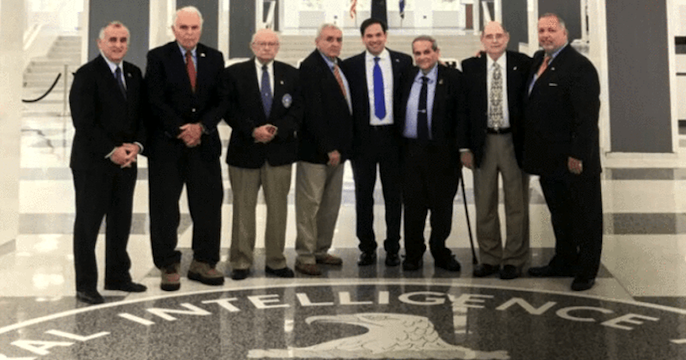
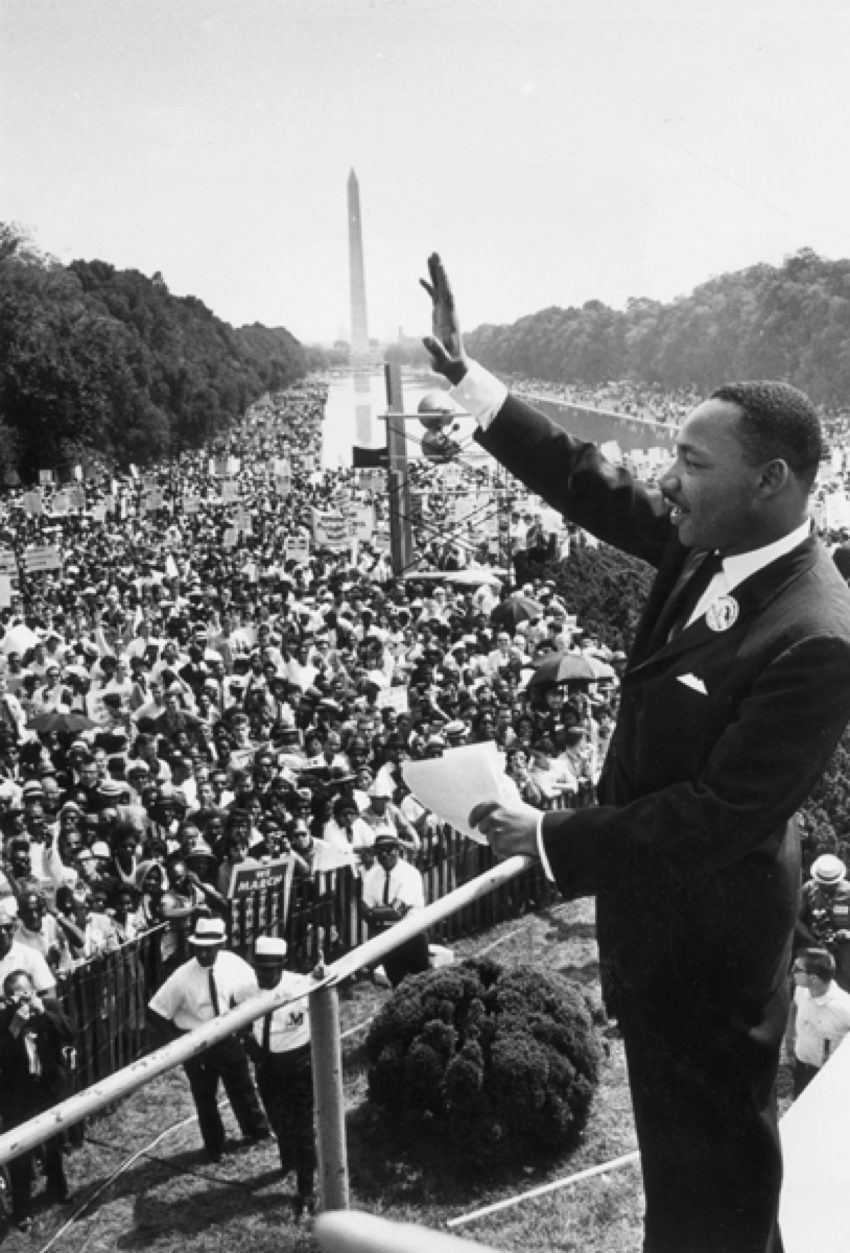

You must be logged in to post a comment.